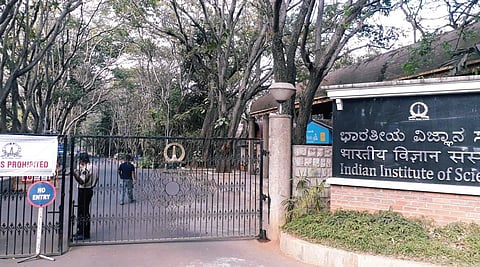

BENGALURU: Research from the Indian Institute of Science (IISc) may pave way for better understanding of progression of cancer. Using a 3D tissue culture microenvironment that mimics breast cancer, a team of researchers from the Centre for Nano Science and Engineering (CeNSE) and Department of Molecular Reproduction, Development and Genetics (MRDG), used magnetic nanomotors to learn more about cancers.The nanomotors were remotely taken through the tumour model of healthy and cancer cells to sense, map and quantify changes in the cellular environment.
Debayan Dasgupta, a co-first author and PhD student at CeNSE, and his team observed that the nanomotors were getting stuck near the cancer cells because of the latter’s extracellular matrix (ECM). This was not the case with normal cells. ECM is a complex 3D network of proteins and carbohydrates that any living cell secretes into its neighbourhood.
The researchers set out to calculate the magnetic field strength required to overcome the adhesive force of the ECM and measure how strongly the nanomotors were binding to the matrix. The work was published in the chemistry journal, Angewandte Chemie, recently.The findings have applications in cancer diagnosis and imaging, quantification of cancer aggression and in vivo drug delivery applications. They also establish a potential of magnetic nanomotors for fundamental studies of cancer mecanobiology, said the researchers.
The researchers found that the nanomotors were sticking to the cancer cells better because of their charged ECM. They tried coating nanomotors with Perfluorooctyltriethoxysilane and noticed that they did not stick to the matrix near cancer cells.Cancer cells, which secrete fresh material into their ECM, degrade the local environment by disrupting the chemical and physical composition of the native ECM of healthy cells.The researchers tried to understand how this microenvironment altered because of cancer cells. Measuring these changes quantitatively could be vital in understanding the progression of cancer, said the researchers.